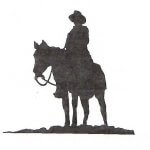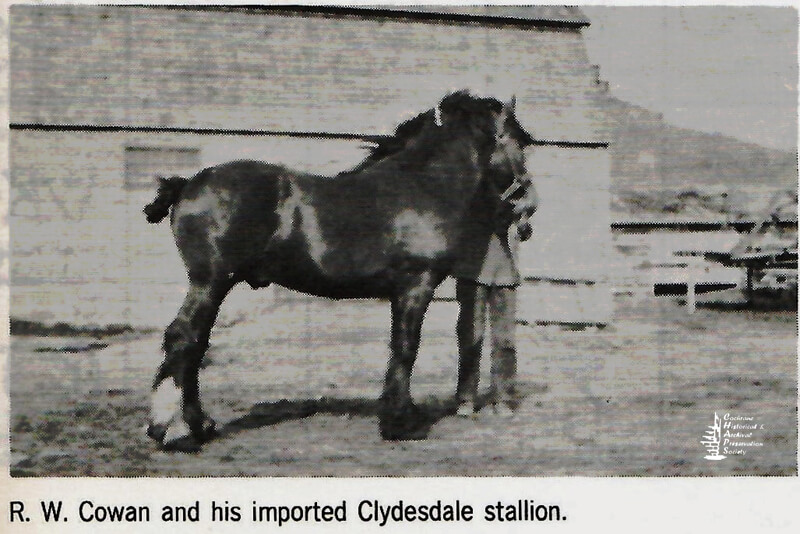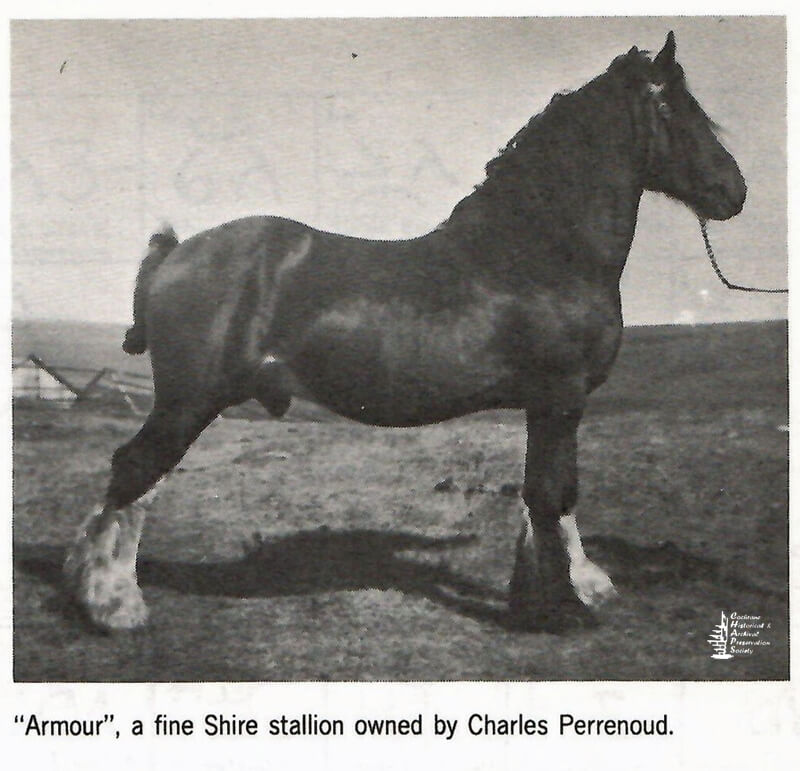page 37 Big Hill Country 1977
As soon as a Cochrane area homesteader filed his claim, he needed workhorses. In some parts of the West, oxen and mules were the forerunners of the horse, but few were used in the Big Hill country. Heavy horses were in great demand; in almost all of a farmer’s work, his horses were his essential helpers and partners.
In many localities in the West, the quality and breeding of work horses did not matter too much, as long as they could do the job expected of them. However, at Cochrane, farmers and ranchers took a pride in the pedigree and quality of their horses. This tradition may have been due to the fact that several of the area’s early ranchers were able to afford imported foundation stock. Some of their progeny was sold to other local horse breeders, and Cochrane became well known to dealers throughout Canada for the quality of its horses, and hundreds were shipped out. The popular breeds were Clydesdale and Shire; later on, Percherons and Belgians were also raised.
The first pedigreed draft horses were brought to Cochrane in the 1880s by Senator Cochrane. A number of other early ranchers either imported breeding stock from Britain or purchased them from other parts of Canada during the era “when the horse was king.” Several Cochrane breeders showed successfully at provincial and dominion fairs and brought home an impressive collection of awards. R. W. Cowan, D. P. McDonald, Charles Perrenoud, R. J. McNamee, Cook Brothers, Donald McEachen, Andy Garson, Frank Brown, Stuart Walker, Earl Paterson, Walter Thome, Frank Postlethwaite and Frank Tindal were among those breeders through the years whose fine stallions and mares helped to maintain the quality of horses in the Cochrane area.
Until the tractor caused the downfall of the heavy horse industry, many farmers kept pedigreed stallions. Some owners “traveled” their stallions around the district to service farmers’ mares for a fee. To own a stallion was a mark of prestige; perhaps the proud bearing of these beautiful animals helped to give their owners pride of possession. They were a familiar sight as they pranced along, from farm to farm, led by a rider.
As tractors became more efficient and more plentiful, the demand for workhorses gradually decreased; the shortage of manpower during and after the Second World War hastened farm mechanization until few farmers even owned a team of horses by the 1950s.




I have a great picture of my grandpa edge with his horse the silver set he won I think is in beryl Sibbald’s family but I have the pic
W.h edge and REDBURN 1904 champion Clydesdale stallion won a tea service donated but molsen bank
I can send pic if you like
Gail lauder